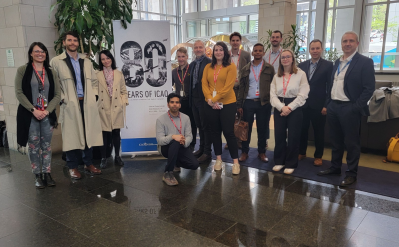News

Looking forward alumni and passionate students!
ENAC Alumni initiative within the Sustainable Aviation Observatory, a working group on innovation in aircraft and propulsion system design has been set up.
The goal is to list and analyze the various levers of decarbonization related to all areas necessary for the design of aircraft and engines. It's a vast subject!
Whether in aerodynamics (laminar flow, induced drag reduction, variable camber wing, etc.), aerostructure (flying wing, engine integration, struts, etc.), propulsion (UHBPR-GTF-3 shaft engine, open rotor, ITB and dual-fuel architectures) and use of alternative fuels (hydrogen, ammonia for combustion, fuel cells, electric motors, etc.), materials (composites, fuel cells, etc.), or the use of renewable energy (solar panels, solar panels, etc.). ), materials (composites, 3D printing, etc.), and systems (electrification, taxiing systems, etc.), there are many areas of research and sometimes complex solutions to reduce or even eliminate CO2 emissions in all phases of flight.
The working group's objective for the Observatory is multiple:
1. To list and document each of these levers, indicating their advantages and constraints, their impact in terms of decarbonation and the issues related to the certification, production or implementation of these techniques;
2. 2. Identify the priority areas of development by determining a list of the most promising levers that could provide a significant and rapid impact in the design of aircraft or engines;
3. 3. Provide a roadmap to 2050 based on this list of priorities, illustrating the implementation of these levers and their impact on the world's aircraft fleets.
The goal is to obtain a synthetic and multidisciplinary view of the technical solutions under development, those that are most encouraging and a forecast of the effect they will have on the decarbonization of the world's fleets.
Phase 1 will soon be completed, but there is still much to do and we are under-resourced and under-sized to make effective progress. We are therefore looking for passionate and motivated Alumni or students to join us and lead this initiative. The workload is adapted according to each person and meetings are organized every 15 days to exchange on the progress of the levers that each of us is in charge of.
Our contacts in the industry confirm the interest for such a study. It should provide an important reference in the field of aircraft and engine design and will therefore be published in English to reach an international audience.
If you're interested, please contact: patrick.baudis@alumni.enac.fr
Patrick BAUDIS (IENAC 89 T)
Serge ALEXANDRE (IENAC 92T)
Paul CUER (IENAC 20)
Jean-Francois PETIT (project manager, ENAC)
Patrick BAUDIS (IENAC 89 T)
Serge ALEXANDRE (IENAC 92T)
Paul CUER (IENAC 20)
Jean-Francois PETIT (project manager, ENAC)
 1
1















1 Comment
Log in to post comment. Log in.